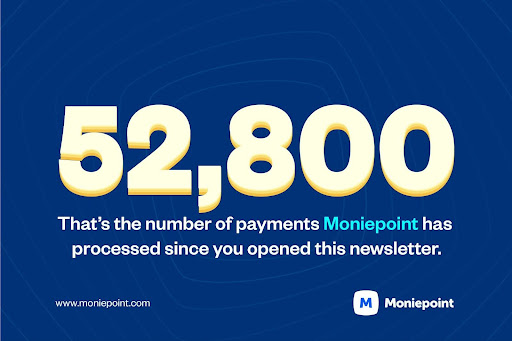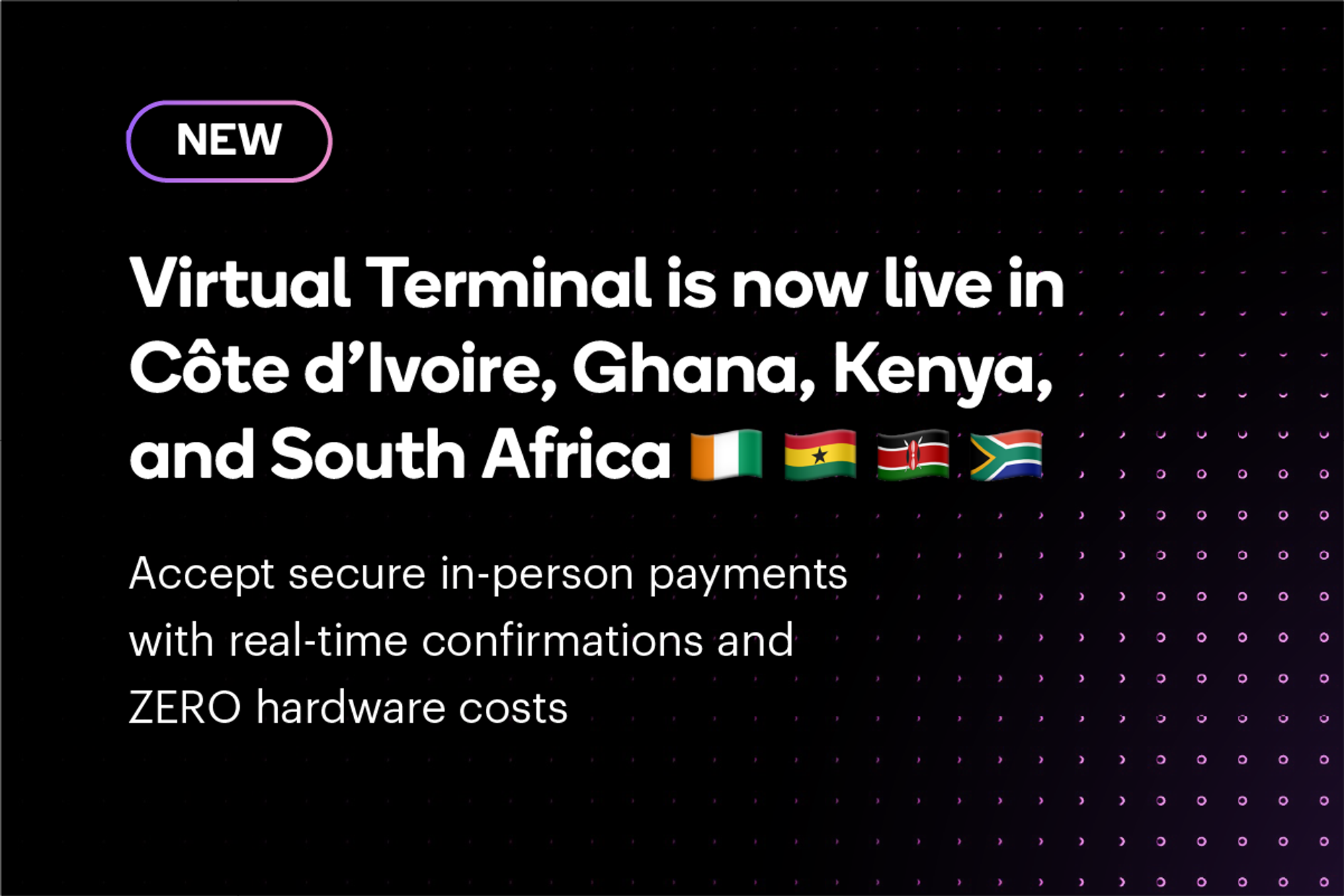

Good morning 
It’s been a week since Kenyan president William Ruto rejected the much-contested Finance Bill, and now, Kenyan youths are rejecting him as their leader.
Thousands of protesters, scattered across Kenyan suburbs wielding #RutoMustGo placards, want the president and his cohorts to take responsibility for their role in the deaths of over 20 protesters and abductions of 50 more in last week’s protests.
President Ruto, meanwhile, is fuming over the lost KES350 billion from the Finance Bill’s taxes. Huge consequences are coming, he said earlier this week. What’s on the line includes a $7.8 billion loan, and the contracts for 46,000 secondary school workers.
LATAM fintech Minka launches in Africa
Fintech startups from Latin America (LATAM) don’t always make their way to Africa. However, when they do, their arrival is usually well thought out, with minimal initial launches in a traditionally receptive market. Uruguay’s dLocal’s launched in West Africa and Kenya in 2020, before EBAN, headquartered in Brazil, arrived in 11 African countries two years later.
Another fintech toeing that line is Colombia’s Minka. It recently launched operations in East Africa, specifically in Kenya, Uganda, and Ethiopia. The startup builds payment networks that allow money to be sent between participating banks or other financial institutions
But here’s the catch: Tens of fintech startups already offer market-fit products and services specifically designed for the African continent.
How Minka will compete is something the industry will keep tabs on, considering the startup will be speaking with a broad range of organisations like fintech and payment associations, non-profits, banks, central banks, and other financial institutions such as SACCOs and credit unions for potential collaborations.
Some of these startups already have partnerships with high-value clients; Nigeria’s Flutterwave, for instance, processes Uber’s fund transfers from a customer’s mobile money wallet (M-PESA) to Uber wallet. And there are dozens of similar working relationships between companies and fintech startups.
What sets Minka apart: Alexander Perko, Minka’s Growth Lead, told me that the company builds real-time payment networks that enable money transfers between participating banks or other financial institutions. “The network aims to connect the world’s financial resources through the web using shared, connected ledgers, simplifying the complex process of moving balances,” Perko said.
This isn’t necessarily a new business model, as many other fintech startups offer similar services. Here’s more on how Minka wants to build its East African arm.
Process payments smoothly with Moniepoint

And we’ll have processed almost 5,000 more by the time you’re done reading this. Your business payments can be one of them. Click here to sign up.
Local cloud providers in Nigeria lobby for government patronage
“Sometimes I wonder how Nigerian startups pay for cloud services, from email to server to Slack to Github etc. Imagine having expenses in USD and revenue in Naira,” someone tweeted last year, and for good reason too.
Over the past year, Nigeria’s currency has lost 70% of its value, currently trading at ₦1,500 against the dollar. This steep decline has increased the cost of operations for businesses and government agencies. One HR startup, for example, is spending up to $80,000 monthly on cloud storage. And government agencies aren’t left out too with their cloud costs reaching $500,000.
But things could be changing. A lobby of local cloud providers in Nigeria wants to help businesses meet their cost-cutting targets through less expensive cloud solutions.
How? Five Nigerian cloud companies are talking with the government to make them their preferred host for sensitive government data. While the move is part of a 2019 National Cloud Computing Policy that prioritises local cloud providers for government consideration, the local cloud providers are making such bids with the government with hopes to attract private businesses.
Considering that 70% of government agencies already use Amazon AWS and Microsoft Azure, bidding on this contract could be a strategic move.
Local cloud providers which accept payments in Naira are also pitching their ease of payment as a moat. Per TechCabal, these local cloud providers are also in talks with Mobile Virtual Network Operators (MVNOs) and pension fund administrators (PFAs) to host data locally.
Issue USD and Euro accounts with Fincra

Create and manage USD & Euro accounts from anywhere. Fincra allows you to issue accounts to your users, partners & customers to collect payments without the stress of setting up and operating a local account. Get started today.
Mano eyes food delivery pie
“If you don’t cannibalise yourself, someone else will,” – Steve Jobs.
Moe Nesr, Mano’s co-founder, may have had this thought when his grocery delivery startup decided to expand into Nigeria’s food delivery market—the same market that drove Bolt Food and Jumia Food out of the country last year due to “harsh economic climate”.
Usually, when a business is expanding to an adjacent market, it means that it is either trying to gain new customers, reposition its business, or benefit from economies of scale. We’re hedging our bets on the latter as Mano previously operated its own inventory dark stores for its grocery delivery business. With an aggregator food listing model, the company may be trying to lower costs on its food delivery service. It has the markings of a balancing act.
The move pits Mano against established players like Glovo and Chowdeck in a $2 billion revenue market, dwarfing the $0.83 billion grocery delivery sector. It is quite tempting to switch from small boats to pirate ships.
But consumer behaviour remains the biggest elephant in the room for food delivery service. Mano’s move is coming at a time when consumers want to pay less for food delivery services, with 30.9% of Nigerians (62,418,000) living in extreme poverty, and not being able to afford spending up to ₦3,000 ($2.15) per day.
But Mano doesn’t seem to mind: Fadekemi Adeyemi, the company’s marketing manager, says Mano is not looking to serve everybody.
The company is playing its business strategy card close to its chest. There are no records of its grocery delivery business numbers, so it’s hard to tell if that business is thriving. However, Mano’s food delivery arm wants to cater to only high-brow buyers who can afford to pay ₦1,400 on meal orders.
Competitor Chowdeck, with the introduction of service fees, when capped, charges around the same region on meal orders and delivers only to specific regions in Lagos, within close proximity to the shopper.
It is difficult to pin down how Mano wants to compete in the new delivery segment. Its selective approach to food delivery suggests a calculated risk that it wants to avoid the pitfall of selling to the mass market; Bolt Food and Jumia Food are examples that this is a bad idea.
Paystack Virtual Terminal is now live in more countries

Paystack Virtual Terminalhelps businesses accept secure, in-person payments with real-time WhatsApp confirmations and ZERO hardware costs. Enjoy multiple in-person payment channels, easy end-of-day reconciliation, and more. Learn more on the Paystack blog →
Tunisia welcomes 5G telcos bid
5G has been touted to improve help us achieve outsized ambitions like telemedicine. However, Africa currently lags behind in the adoption of the technology, with a 0.2% adoption rate as of 2022. With only twenty-seven commercial operators across 16 countries on the continent, more countries are ramping up plans for adoption and welcoming commercial operators.
Bids are open in Tunisia: Yesterday, Tunisia’s Ministry of Communication Technologies invited different telecoms to submit licensing bids for 5G mobile telecommunications network in the country. The move is part of the government’s broader plan to increase internet network in the Northern African country.
The government has set up a new committee within the Ministry of Communication Technologies to oversee the licensing process, and will start welcoming applications from operators from July 3, 2024. Operators will be required to pay an application fee of 5,000 Tunisian dinars ($1,590). The telecom licence will be valid for 15 years.
The news comes after the government’s approval of the 5G launch roadmap on June 13, which plans to allocate 5 MHz duplex to a local telecom provider.
While the news comes as a relief for the 9.96 million internet users in Tunisia, they will have to wait longer to access the service as the government will wrap up applications for the licenses in September.
- The Africa Prize for Engineering Innovation is open to African innovators creating engineering solutions to local challenges. Innovators from sub-Saharan Africa should pitch viable engineering products or services that will have social or environmental benefits to the continent. Apply for the chance to get up to $25,000 in funding.
- The Future of Capitalism Tech Startup Competition is offering $1 million to one lucky tech startup that can transform how businesses today operate. If your tech can save costs, boost efficiency, increase productivity or customer satisfaction, then apply by September 30 for a chance to win.
- Applications are now open for the 5th cohort of Microsoft’s GrowthX Accelerator Programme. AI Startups can apply to join the eight-week incubator that will provide $25,000 worth of azure credits, mentorship from some of the biggest tech corporations and investor readiness lessons. Apply by September 2, 2024.
- The WASCI Next Generation Technology Internship is open to young graduates in Nigeria and Ghana who want to use tech to solve social problems. The six-month programme will see 3 interns work in civil society organisations. Apply by July 12.
Here’s what we’ve got our eyes on
Written by: Emmanuel Nwosu, Faith Omoniyi & Kenn Abuya
Edited by: Timi Odueso
Want more of TechCabal? Sign up for our insightful newsletters on the business and economy of tech in Africa.
- The Next Wave: futuristic analysis of the business of tech in Africa.
- Entering Tech: tech career insights and opportunities in your inbox every Wednesday at 3 PM WAT.
- TC Scoops: breaking news from TechCabal
P:S If you’re often missing TC Daily in your inbox, check your Promotions folder and move any edition of TC Daily from “Promotions” to your “Main” or “Primary” folder and TC Daily will always come to you.
from TechCabal https://ift.tt/CJRuXvL
via IFTTT






Write your views on this post and share it. ConversionConversion EmoticonEmoticon